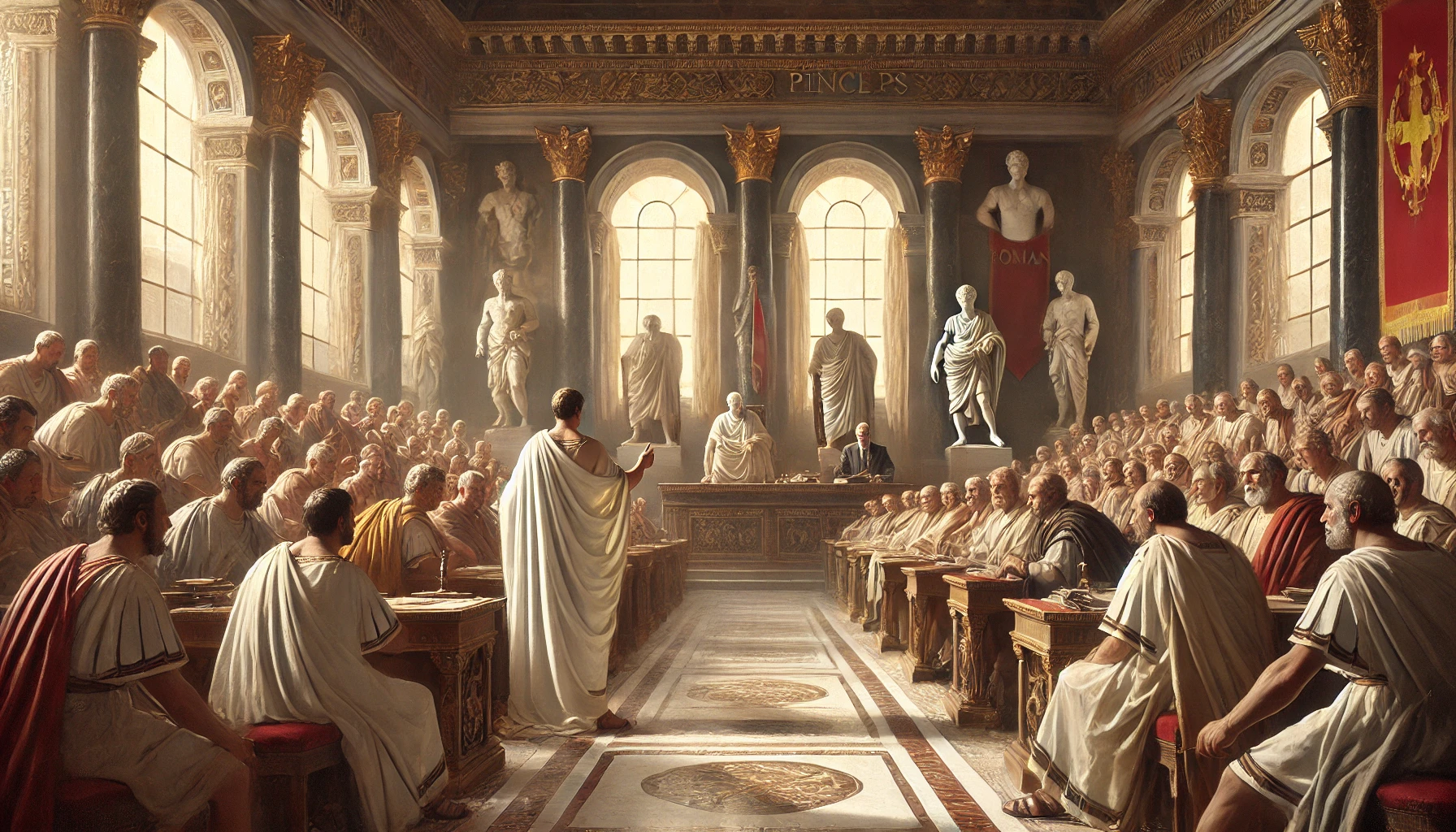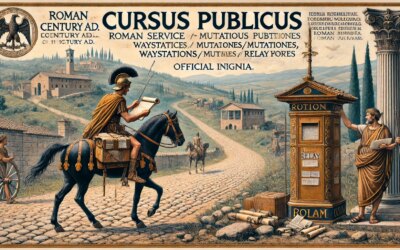Introduction: The Transformation of a Republic
In 27 BC, the Roman Republic officially came to an end—at least in form—when Gaius Octavius, the adopted heir of Julius Caesar, was granted the title “Augustus” by the Roman Senate. This moment marked the beginning of the Principate, the first phase of the Roman Empire. Though cloaked in republican traditions, this new order centralized power in the hands of one man and redefined the structure of Roman governance for centuries.
Background: From Civil War to Political Mastery
Following Caesar’s assassination in 44 BC, Rome descended into years of civil war. Octavian, Mark Antony, and Lepidus formed the Second Triumvirate, which ruthlessly eliminated their enemies—including Cicero—and divided control of the empire. After defeating Antony and Cleopatra at the Battle of Actium in 31 BC, Octavian emerged as the unrivaled master of the Roman world. But instead of declaring himself king, he chose a subtler, more enduring route to absolute power.
The Senate Session of January 27 BC
In January of 27 BC, Octavian staged a dramatic gesture: he offered to surrender all his extraordinary powers and restore authority to the Senate and the people of Rome. The Senate, either sincerely or by orchestrated design, refused. Instead, they granted him unprecedented honors and powers—bestowing upon him the title “Augustus,” meaning “the revered one.” He also retained control over key provinces and the military, effectively ensuring his supremacy.
The Creation of the Principate
The new system, known as the Principate, was based on the idea of the “Princeps”—the “First Citizen” of the state. Augustus avoided monarchical titles but accumulated numerous offices and powers: tribune for life, proconsular imperium, and the title “Pater Patriae” (Father of the Country). The republic’s institutions remained, but real power rested with the emperor. This careful balancing act preserved the illusion of republican governance while consolidating autocratic rule.
Augustus’ Political Genius
Augustus’ brilliance lay in his ability to legitimize his authority without alienating the elite or the populace. He rebranded autocracy as stability, presenting himself as the restorer of order and tradition. Public works, grain distribution, games, and military reforms won him popular support. Meanwhile, his respectful treatment of the Senate ensured their cooperation, if not genuine admiration.
Legal and Administrative Reforms
Under Augustus, Rome saw sweeping changes: the establishment of a professional army, a standing treasury, the expansion of the civil service, and the codification of provincial governance. He reformed taxation, promoted moral legislation, and patronized art and literature, leading to what is now known as the Augustan Age—a period of unprecedented peace and prosperity.
The Legacy of 27 BC
The events of 27 BC fundamentally reshaped the Roman state. Augustus ruled until his death in 14 AD, and the imperial system he created endured in various forms for nearly five centuries in the West and over a millennium in the East. His subtle consolidation of power created a model that later emperors would follow, even as the Principate eventually gave way to more overt forms of monarchy.
Conclusion: A Republic Reimagined
The Senate’s acclamation of Octavian as Augustus in 27 BC was not just a moment of political theater—it was a carefully choreographed act that legitimized a new form of rule. With republican titles and imperial authority, Augustus founded a regime that would dominate the Mediterranean world and influence political thought for generations. The birth of the Principate was both an end and a beginning—the twilight of the Republic, and the dawn of the Roman Empire.






